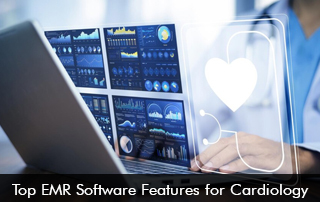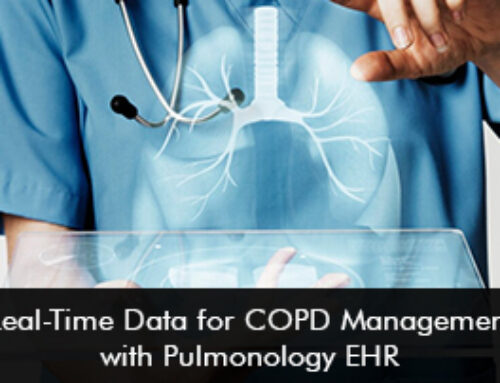Cardiology is a challenging field. This specialty continually evolves with progress in healthcare technology such as Electronic Medical Records (EMR) Software Systems and different treatment approaches. To empower cardiologists to diagnose and treat heart and vascular conditions, they can use Cardiology EMR Software to enhance patient care and streamline clinical and administrative workflows.
Importance of EHR Software Interoperability for Cardiologists
Cardiologists need EMR software interoperability because it facilitates easy patient data interchange between various healthcare systems which guarantees access to complete and current medical histories. By enabling precise diagnosis and tailored therapies and lowering the need for unnecessary testing, this capability enhances patient care while increasing efficiency and conserving resources.
Interoperability in Electronic Health Records Software also helps interdisciplinary teams coordinate better, which promotes efficient and unified patient care. In addition, it facilitates regulatory compliance, improves patient safety by giving comprehensive records to detect drug interactions and allergies, and permits data-driven decision-making by supplying insights from aggregated data. EHR Software interoperability is necessary to provide coordinated, effective, and high-quality cardiovascular treatment.
Key EMR Software Features for Cardiology
A modern Cardiology EMR Software System equips cardiologists to take the right action at the right time. These functionalities are designed specifically to meet the unique requirements of cardiology practices:
- Cardiology-Specific Templates – The built-in templates for cardiology procedures are included in the EHR Software. Some examples of these templates are stress tests, catheterizations, and echocardiograms.
- Integration with Diagnostic Equipment – The seamless integration functionality with diagnostic equipment like ECG and EKG automatically imports test results into patient records. This keeps records updated and accurate for cardiologists to make precise healthcare decisions.
- Decision Support and Clinical Alerts – Evidence-based decision-making can prevail with clinical decision support tools embedded in the cardiology electronic medical records software. Furthermore, automatic and real-time software alerts about immunizations and potential drug interactions help to enhance patient safety levels and health outcomes.
- Billing and Coding – Cardiology-specific integrated billing and coding systems guarantee precise and effective financial administration.
Latest Trends in Cardiology EHR Software System
Keeping track of the emerging trends in Cardiology EMR Software can help cardiology practices stay on top of patient care and even stay profitable. The following trends are dominating the cardiology software:
Personalized Cardiac Care
EMR Software vendors are focusing on releasing features that help with personalized treatment plans that take into account individual health data.
Cloud-based
Cloud-based Electronic Health Records (EHR) Software are in demand as they offer better security and flexibility. Cloud-based systems allow cardiologists to practice on the go and coordinate with other specialists via their smartphones.
Integration of Artificial Intelligence and ML
AI algorithms for cardiology EMR software can analyze vast amounts of patient data to detect trends and anticipate results, thus facilitating early diagnosis and individualized treatment strategies. Machine learning algorithms aid in risk stratification by identifying people at high risk for illnesses such as heart failure or stroke.







